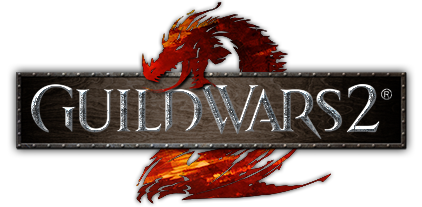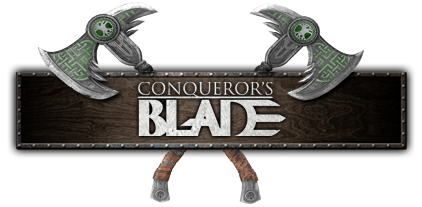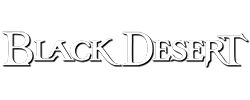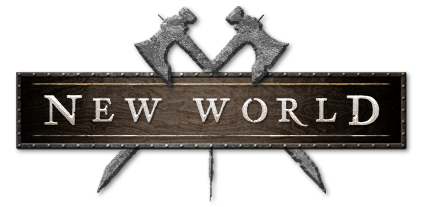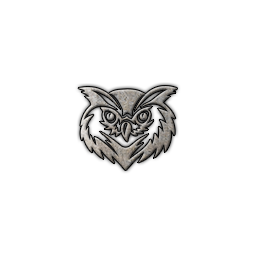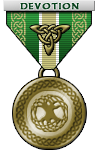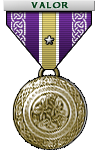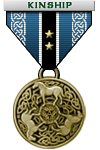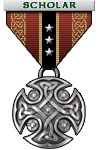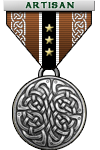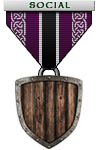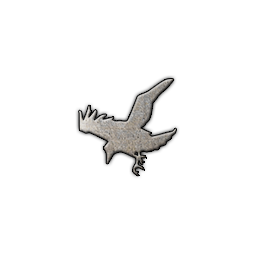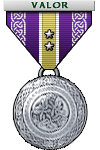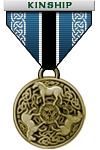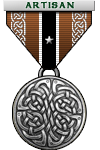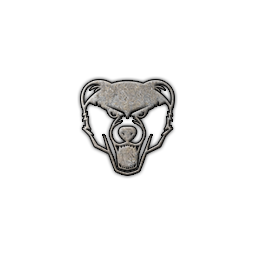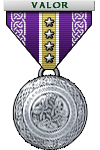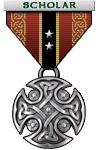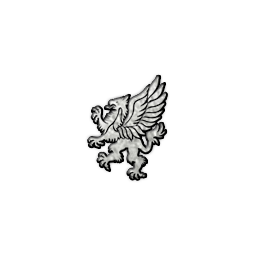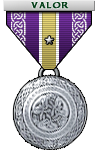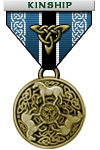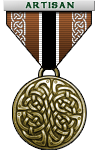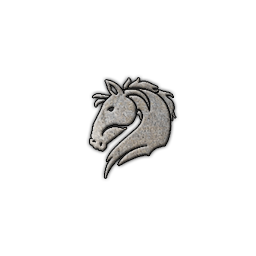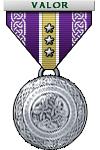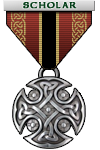i thought it would be fun to share my knowlege of the gods of warhammer with you all enjoy.
International Gods
Taal and Rhya= represent nature and agriculture. They are presented as the male and female aspects of a more abstract deity, Ishernos. They are presented as brother and sister of, or as part of a trinity with, Ulric. They are apparently derived from nature gods of Northern Europe.
Manann= is the god of the sea. He is derived from the Celtic Irish god Manannan, and shares most of his characteristics
Morr= is the god of death and dreams, based on Thanatos and Hypnos. He seems to be part of a group of southern gods, with his wife, Verena, and their children.
Verena= is the goddess of justice and learning, and by extension academia and administration. She is based on the academic aspects of Athena.
Shallya= is the goddess of mercy and healing, and directly interested in doing good and promoting weak, unusual for the generally grim and harsh Old World setting. She is the daughter of Morr and Verena, and sister of Myrmidia.
Ranald= is the trickster god of trade, crime, and deception, based on Hermes, Mercury, and Loki. His background in the context of the Old World pantheon is unclear; he may be the son or brother of Shallya, or a mortal who tricked his way into immortality.
Khaine= is worshipped as the god of murder by a few Old World humans, mainly assassins, murderers, and similar supplicants. Among elves Khaine is a divinity with much broader provenance; the High Elves regard him as the god of war, while the Dark Elves hold him as their main patron god, the god of killing, murder, and apparently a force of natural selection.
Regional Gods
Sigmar= is presented as a mortal king who ascended to divinity after uniting the primitive tribes of the central Old World into an Empire. This character is among the most developed, and many stories regarding his achievements and activities are related in the Warhammer setting’s fiction and colour text. He is the patron god of the Empire, and widely worshipped in that nation, but rarely worshiped outside its boundaries. Sigmar has no clear and obvious single inspiration in classical, Norse, or other mythology, but may be comparable to the deification of Romulus who became the immortal patron of the Roman Empire under the guise of Quirinus. His cult is in same ways similar to the medieval Christian Catholic Church, too. He is in many ways similar to 'The Emperor' in Warhammer 40k.
Ulric= is the god of winter, wolves, and battle. He is presented as brother of Taal and Rhya, and the original patron of the mortal Emperor Sigmar. He is the tutelar God of the tribe of the Teutogens, and mostly worshiped in the north of the Empire.
The Lady of the Lake = is a mysterious goddess worshipped by the upper class of Bretonnia. Other than being the matron goddess of Bretonnia and their nobility, she has no clear function; she is, however, actively involved in the lives of her worshippers, regularly appearing to and inspiring the knights of Bretonnia to glorious deeds in her name. She is obviously based on the Arthurian Lady of the Lake, who was not considered a divine being. The Bretonnian Lady of the Lake is not worshipped outside Bretonnia, except by some knightly expatriates.
Myrmidia= is the goddess of warfare, warcraft, and soldiers, and an important goddess of Estalia and Tilea. Worship of this goddess is spreading, unlike most regional divinities of the setting, and she is becoming popular with middle-class professional soldiery of the Empire. She is probably inspired on the Greek goddess Pallas Athene, who represented the tactical side of warfare.
Hashut=, the Father of Darkness, is the patron deity of the Chaos Dwarfs. He is the god of fire, volcanoes, and industry. There is no evidence to suggest that anyone other than the Chaos Dwarfs worship him. Hashut's origins remain a mystery.
Gods of Kislev
Kislev, the region of the Old World corresponding roughly to the Slavic lands of Russia, Czech Republic and Poland, has its own gods, as well as worshipping Taal and Rhya, and Ulric. These gods may be intended by the designer to be part of a greater northern pantheon.
Ursun,= Father of Bears, is the ruler of the Kislevian pantheon, appearing mainly as a giant bear.
Dazh, is the god of fire, the hearth, and hospitality. Apparently based on Svarog and Dažbog.
Tor,= is the god of thunder and lightning, and a popular warrior god. Obviously related to the Norse god Thor.
Minor Gods
The Warhammer setting has a number of lesser divinities, some local, others widespread but with a narrow focus of office or patronage. This list is by no means complete.
Bögenauer= is a local patron god, or perhaps a kind of locus genius, representing the town of Bögenhafen. This deity first appeared in Shadows Over Bögenhafen; the idea that locations have such personifications has not been well developed in the Warhammer settings, but crops up occasionally.
Handrich= is the god of commerce and prosperity, worshipped by merchants. His largest cult and temple are in the great trading city of Marienburg.
Lucan and Luccina= are the twin patron gods of the Tilean city of Luccini, where they are said to have founded the original ruling royal family. They, and the city, are symbolized by a leopard.
Olovald= is the god of the marshes and delta in the Wasteland. This deity’s cult has largely been subsumed by the cult of Manann, but the entity seems to still be active, and has a secret cult in Marienburg.
The small numbers of Elves of the Old World chiefly worship the traditional Elven Gods, Kurnous, lord of the wilds and the hunt, and Isha, goddess of nature and life, but a sect of the Wood Elves of Athel Loren known as Wardancers serve the deity known as Loec, Lord of the dance and free spirit.
Chaos Gods
Worship of the Chaos Gods is strictly forbidden in virtually all of the Old World, but such worship does occur, as part of the setting’s background, to provide internal and external conflict. In brief, these gods are:
Khorne,= The Blood God, bestial god of blind rage, destruction and bloodshed. Draws upon the minds of mortals, mostly warriors, who wish for martial prowess, honour and glory on the field of battle and quickly become overwhelmed and insane of the power they are granted. Khorne is the eldest and most powerful of the Chaos Gods, and his ultimate victory is often hinted at.
Nurgle,= the Lord of Decay, kind and fatherly god of disease, entropy and finality followed by morbid rebirth, often referred to as Father or Grandfather Nurgle. Calls to people who are afraid of death and loss, like peasants who live in poor circumstances and have little to lose except their family, crop and lifestock.
Tzeentch,= The Changer of the Ways, trickster god of change, magic, and thirst for knowledge. People, often educated ones like scholars and wizards, who wish for forbidden knowledge and divine understanding are often drawn to the service of Tzeentch.
Slaanesh,= The Dark Prince, seductive god of excess, pleasure and experience. Whispers to individuals and wish for charisma, beauty and power over others or equally desire material excess like wealth or food and drink. Slaanesh alone, of all the Chaos Gods, is impossibly beautiful and attractive, and both men and women are drawn to him. He is the youngest Chaos God and seems to be the most obviously attractive in all ways, and should be able to grant anything to those in his thrall, but he is still presented as the least powerful of all the four Dark Gods.
The Chaos Gods and their symbolism can often be related to the seven deadly sins, as they many times embody qualities, thoughts and temptations that, succumbed to, inevitably leads an individual to horrible and selfish deeds, thus allowing the Gods to prey upon the individual's self-indulgent and ignorant mind and use him/her for their own ends. Most followers are aware of this and in perfect acceptance of it. The Norse of the setting worship all or some of the four chaos gods in some fashion, as the Norse live relatively near to the Chaos Wastes, but also an array of other, mostly local, gods.
Greenskin pantheon
Greenskins worship a pair of gods known as Gork and Mork (cf. Gog & Magog). Apparently, one is brutally cunning, and the other is cunningly brutal.
In some rare occasions, greenskins can be found worshipping the chaos god Khorne. Forrest Goblins also worship the Great Spider along with Mork and Gork.
Dwarfs venerate their ancestors and their deities are the "Ancestor Gods" which are said to have been formed from the very stone of the world itself. There are three main ones: Valaya, Grungni, and Grimnir.
Grungni is the patron of the forge and miners, and is depicted as the wisest of the Ancestor Gods, typically taking place as the "head" of the gods. In the game the Master Rune of Grugni protects Dwarfs by giving them a magical kind of shield to protect them from enemy missile attack.
Valaya is the patron of Runesmiths. It is said she is sleeping deep within the mountains until a time when she is needed again. In the Game the Master Rune of Valaya protects Dwarfs from enemy magical assault.
Grimnir was a great warrior with two rune axes. He helped the High Elves defeat Chaos at the northern Chaos Gates and although no evidence of his fate exists, it is assumed that he died there, or perhaps some far more sinister fate befell him. Of his weapons, one axe is now held by Thorgrim Grudgebearer and the other axe was taken with him to battle the chaos forces of the northern gate in the first chaos invasion. Some believe the second axe is the weapon wielded by the Slayer Gotrek Gurnisson. In the game the Master Rune of Grimnir (which may only be used by Dwarf armies using the storm of chaos slayer list) has a similar effect as the Master rune of Grungni but with a larger area of effect
Gods of Law
A lesser known group of Warhammer deities, they oppose the Chaos gods, although they are equally feared due to the extremist tendencies of their followers. None received a lot of attention, although Solkan is mentioned in the novels.
Alluminas, god of illumination and everlasting and unchanging purity.
Arianka, a goddess defeated and imprisoned by an unnamed Chaos God.
Solkan, "the Avenger".
» Edited on: 2010-11-13 13:01:50













